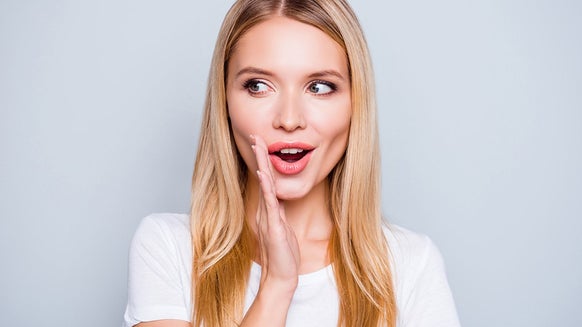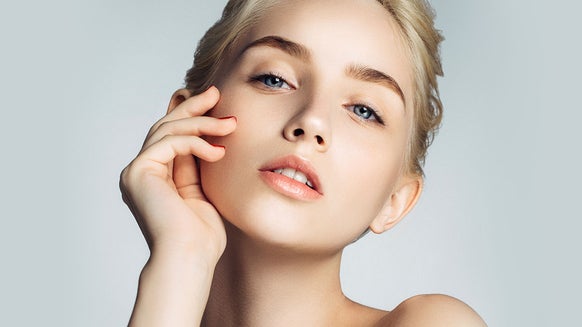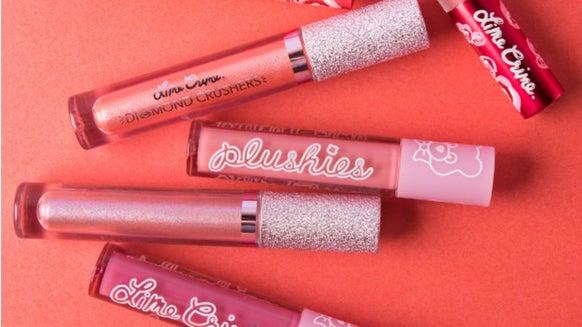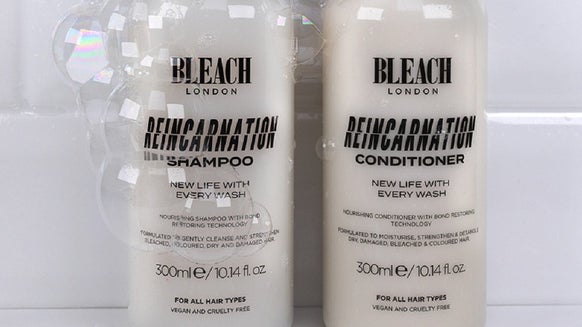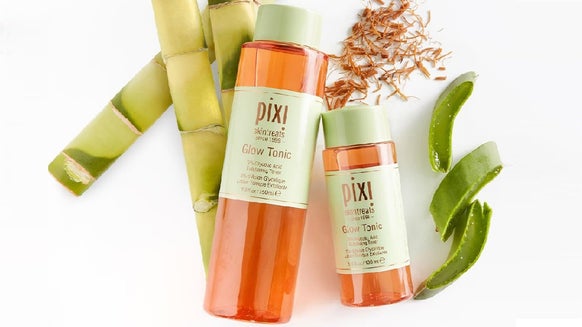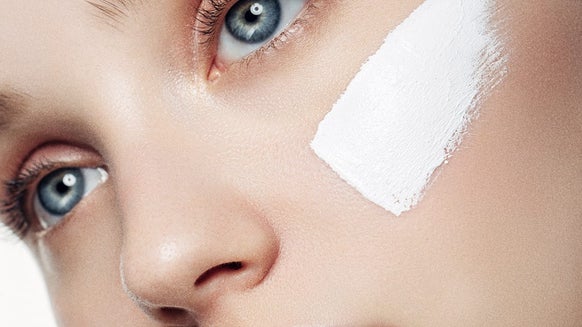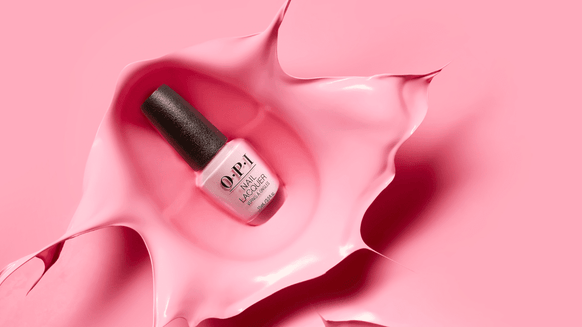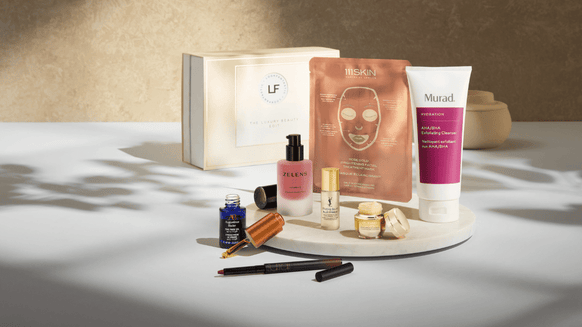The Beauty Sleep Report
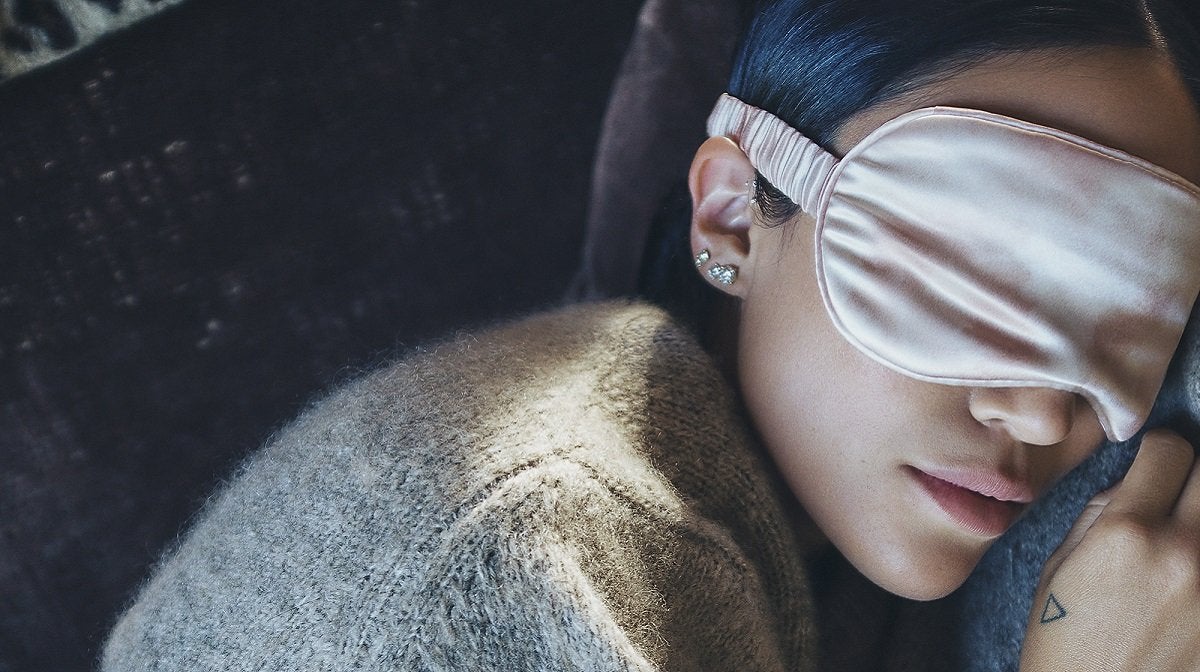
Beauty Sleep Report
The do's and don'ts of getting your beauty sleep
Beauty sleep is a phrase we have all grown up with, whilst being constantly reminded to get those eight hours to better ourselves. However, many of us struggle with this by letting productivity and socialising take priority over self-care. But how is this impacting the way we look, feel and act - and how can we improve our daily habits to make getting that beauty sleep that little bit easier?
How many hours of sleep do we need?
Healthy adults need at least seven hours of sleep a night, however, up to 9 hours can be very beneficial for most adults. Babies, young children and teens need even more sleep to aid their growth and development. There is no one-size-fits-all when it comes to how much sleep we need. Maybe you are a person who wakes up early after a late night feeling alert and refreshed, or do you get the recommended amount of sleep but always seem to feel like you’ve not quite had enough?
According to YouGov data, almost half (49%) of Brits think they don’t get enough sleep every night, with this applying to a higher proportion of women (53%) than men (45%). This is no surprise as hormones and menstruation can have a big impact on quality of sleep.
Women between the ages of 25-59 are significantly more likely than other ages to say they don’t get enough sleep, with 58-60% of women stating so.
How does this affect people’s quality of life? Nine in ten people say their life would be significantly improved if they had more sleep.
Impact of sleep on physical health
Sleep plays a massive role in our physical appearance. Scientific research shows that not only is a good night's sleep a luxury for many, but it is necessary if wanting to maintain and enhance our beauty and physical health.
From dry and red skin to a smoother, more glowy appearance, sleep has a transformative power when it comes to our physical appearance. This is because much of the body’s repair and renewal processes happen when asleep and resting. When we are in deep sleep and recovery mode, our body produces growth hormones. These hormones create new cells which help our skin heal from any damage that’s been done during the day. After all, the skin is one of the largest organs in the body which is why it is particularly affected by sleep quality, meaning it is one of the first things to show the effects of sleep deprivation.
Dark circles
Dark circles are largely genetic but are often exacerbated by a lack of sleep. They are often the result of light being reflected back from the blood vessels sitting just below the skin’s surface. However, when you are tired the dark circles become more prominent as the blood vessels increase in size. When you haven't had enough sleep, your body produces more cortisol (stress hormone) to try and boost your energy levels, which results in more blood in the body and larger blood vessels.
Of course, getting enough sleep is key to reducing your dark circles, but using specifically formulated eye creams and the right method of application of concealer can help give the appearance of being well-rested in no time.
Fine lines and wrinkles
Consistent sleep deprivation can cause a faster depletion of skin plumpness. This is because collagen is produced during sleep, and collagen is key to the elasticity of the skin, preventing wrinkles and sagging in the skin.
Dry, red, acne-prone skin
The spiked cortisol levels that occur due to a lack of sleep also trigger inflammation. This breaks down the protein that keeps the skin glowy and smooth and also makes your skin more prone to acne and breakouts, as well as making it more sensitive. A lack of sleep also lowers your body’s PH levels which results in dry skin.
Benefits of Sleep
We know that a lack of sleep can have a detrimental impact on how we look and feel. But how exactly does getting those eight hours turn us into a real-life sleeping beauty?
Strengthened Hair
Good sleep promotes the production of growth hormones, enzymes, and proteins that are essential for strong healthy hair.
Enhanced Complexion
Once asleep your body produces growth hormones that ensure your skin is producing enough collagen. This means your skin stays tight and bouncy and also aids the repair process for acne and scarring across your face and body.
Depuffed eyes
When you get enough sleep, you reduce the extent to which the blood vessels under the eyes dilate. This means that less blood is pooling in the under-eye area, reducing the look of under-eye bags.
Impact of sleep on mental health
Sleep also has an extremely intricate relationship with mental health and well-being. Not only does sleep play a large role in cognitive function, psychological resilience, stress hormones and emotional stability, but this goes on to have a significant impact on self-confidence and the perception of beauty.
Low self-esteem
Studies show that poor sleep often results in lower levels of self-esteem. Sleep deprivation makes us more prone to feeling more drained and emotional. This emotional sensitivity impacts confidence massively.
Anxiety
Scientists have proven that sleep deprivation fires up the parts of the brain associated with emotional processing, which then mimics the symptoms of anxiety disorders. Otherwise, healthy people will often experience increased anxiety and distress after sleeping poorly.
Poor cognitive function
Research shows sleep helps strengthen our memories, with different phases helping consolidate new information. Sleep deprivation prevents these cycles from being complete. This means when you are tired you often forget and misplace things. Sleepiness also exacerbates issues with concentration and focus, further weakening memory.
The most popular beauty sleep heroes
Often people will turn to products like pillow sprays, essential oils and body oils in the hope that it will help them drift off into a restful night’s sleep. We looked at our internal website and sales data to find out which were the most popular sleep hero products loved by customers.
The thisworks Deep Sleep Pillow Spray came in as our most popular sleep aid product in the UK. This is no surprise as the iconic award-winning product uses lavender, chamomile and vetiver to guide you towards sleep using a sensory experience to create an air of relaxation. And the proof is in the pudding, with almost 14,000 monthly Google searches for the product consistently showing how beloved the product is. The product is also vegan and cruelty-free meaning users can rest easy.
Pillow mists are perhaps the most famous and widely available sleep aids but are not all that is available to help you get a restful night's sleep. The NEOM sleep saviours kit is the second most popular beauty sleep hero in the UK - and for good reason! The kit includes multiple different product types, from body butters to candles, to help you try out what works best to help you get those eight restful hours. One of the stars of the kit is the Perfect Night’s Sleep Magnesium Body Butter, which is supercharged with the vital mineral magnesium, alongside lavender and jasmine to help with hydration and nourishment whilst delivering a relaxing aroma to aid sleep.
The Mio Go with the Flow Body Oil ranks as the third most popular beauty sleep product in the UK. The nourishing body treatment is the ultimate hero to help you unwind after a long day, using aromatherapeutic oils to promote relation and rest. The dry body oil envelops the skin in a luxurious remedy leaving the body soothed and comfortable for a good night's sleep and the perfect conditions for repair.
Essential oils are key to aromatherapy, a popular practice where you can harness the power of scent to support well-being. The fifth most popular beauty sleep hero, the ESPA Aromatic Essential Oil Diffuser is a great investment to help transform your bedroom with the perfect aroma to promote relaxation and sleep.
The ESPA Home Oxford Edge Silk Pillowcase is the eighth most popular sleep product in the UK. Silk pillowcases not only feel incredibly soft and luxurious, but they also have many benefits that are going to help make the most of your beauty sleep. The inherent properties of silk keep you cool and refreshed, with breathable qualities to support sleep, but the smooth surface allows hair and skin to glide over the fabric thanks to reduced friction. Traditional pillowcases can cause skin creases which later become wrinkles, and exacerbate bedhead and frizz which can cause split ends over time.
The Brushworks Satin Sleep Mask proves a popular, purse-friendly alternative if you want to enjoy a similar level of luxury whilst you snooze. Research shows satin sleep masks result in a better quality of sleep thanks to fewer disruptions, but are also shown to boost melatonin levels making you feel more refreshed when you wake up in the morning. This makes it the 9th most popular product in the UK. This is no surprise, as light can have a significant impact on the ability to fall asleep. According to a YouGov study, 52% of women have difficulty falling asleep if there is a light coming from somewhere, compared to 44% of men.
CBD drops have certainly become a go-to product for many looking to easily improve the speed at which they fall asleep. The OTO CBD Sleep Drops have quickly become a customer favourite and the tenth most popular sleep product in the UK. This is thanks to CBD’s anti-anxiety properties. Anxiety and stress are some of the most common reasons why people struggle to fall asleep. By reducing these feelings people can often see improvement in their sleep quality.
Building the perfect nighttime routine for you
Creating the perfect nighttime skincare routine for you might take some time to get right, but…
Cleansing is possibly the most underrated step in a skincare routine. It is crucial to remove any grime, makeup, pollution and sebum that has collected in your pores to ensure your skin can function properly. It is also key to ensuring your other skincare products can penetrate the skin whilst you sleep. If you want to be really thorough, double cleansing can be very effective. First use a cleaning oil or balm to dissolve the makeup, SPF and dirt from your skin. Then use a gel or water-based cleanser to clean the skin itself and target any specific concerns. This prevents you from sleeping in your makeup, lets your skin breathe and prevents pores from clogging overnight.
Nighttime is considered the best time to use “actives” such as BHAs or retinol, as when your body is asleep, it goes through several changes that help your skin better absorb and utilize active ingredients.
If you struggle with dehydrated skin, now is the time to use a serum or mask that contains hyaluronic acid. This ingredient can hold up to 1,000 times its weight in water, helping to draw in moisture to replenish and plump the skin.
The skin around the eyes is very thin and delicate so often shows signs of ageing and fatigue easily, that's why using a specially formulated eye product can be very helpful especially before bedtime.
Overnight, transepidermal water loss can increase by up to 25%, which means it is very important to lock it all in with a good moisturiser. This will also help support the skin’s natural barrier and combat sensitivity. Ceramides are fatty acids that help the skin stay hydrated whilst producing more lipids, so are a great ingredient to look out for when choosing a night cream.
When do people need help with their sleep the most?
Sales for popular products that aid in a good night's sleep see a massive increase across the summer months, especially in August. This indicates that people are looking for products to help them sleep when the weather is hot. Over the summer of 2022, when the UK experienced its hottest summer in history, there were almost 60,000 searches for answers to the question “How to sleep in hot weather”, as people struggled to cope with getting enough rest in the high temperatures. In 2023 it's predicted that we will be experiencing a summer even hotter than the last, so what do the experts suggest to help:
Certified sleep expert from Sleepmattress HQ, Susan Miller advises on how to sleep better when it's hot in the summer months:
Sleeping during hot summer nights can be challenging, but here are few sleeping tips that can be helpful:
- Cool your bedroom with fans, air conditioners, or open windows to ensure a well-ventilated sleep environment. Avoid direct sunlight during the day to prevent heat buildup.
- Use bedding materials that are lightweight and breathable, such as cotton or linen sheets, which will enable better air circulation and heat dissipation. Avoid synthetic materials that trap heat.
- Stay hydrated but be mindful of consuming excessive fluids close to bedtime to avoid frequent trips to the bathroom.
- Take a cool shower or bath to lower your body temperature and make you feel more comfortable to sleep.
- Use cooling aids like gel-filled pillows, cooling mattress toppers, or cooling pads that help regulate body temperature and provide a cooler sleeping surface.
- Wear loose-fitting, lightweight sleepwear to enhance heat dissipation and airflow around your body. Sleeping naked can also be helpful.
- If you live in a multi-story home, consider sleeping on a lower level where the temperature tends to be cooler.
- Adjust your sleep position: Experiment with different sleep positions to find the one that feels most comfortable and promotes better airflow around your body. Sleeping on your side or in a slightly elevated position can help with heat dissipation.
- Minimize the use of heat-generating devices such as lamps, electronics, or appliances in your bedroom.
- Plan outdoor activities or exercise earlier in the day when temperatures are cooler to avoid overheating closer to bedtime.
Social media sleep trends
Alongside makeup tutorials and product recommendations, TikTok has been a hub for sharing tips and tricks on how to get a restful night's sleep with advice from all corners of the globe. But what do the experts really think of these hacks and how much will they really help?
Carlie Gasia, a Spencer Institute–Certified Sleep Science Coach and publishing coordinator for Sleepopolis breaks down viral TikTok trends and explains whether they really can help you get a good night's sleep.
Airing your duvet outdoors, also known as the Scandi duvet hack, involves hanging your duvet outside to freshen it up. While there may not be specific scientific studies on this practice, there are potential benefits and considerations to keep in mind. Benefits include added freshness and a more natural method of moisture removal. However, weather conditions, allergens, the additional time/effort required (vs using a dryer) and potential UV damage on your duvet should be considered. Airing your duvet outdoors can be a refreshing practice, but regular cleaning and maintenance is still essential.
Brown noise, a lower-frequency alternative to white noise, can promote relaxation, mask other sounds, improve focus and even provide relief for tinnitus. However, individual noise preferences at night and appropriate volume levels to avoid disturbing sleep should be considered. Using brown noise consistently for sleep might also create a dependency on the sound to fall asleep. While it can be useful as a sleep aid, it's important to develop healthy sleep habits and not rely solely on external noise for sleep initiation. It's important to experiment and find what works best for you, while also maintaining a sleep-friendly environment and practicing good sleep habits.
The Sleepy Girl mocktail, consisting of tart cherry juice, magnesium powder, and Olipop soda, has potential benefits for sleep. Tart cherry juice contains melatonin, magnesium promotes relaxation, and the soda adds a fizzy touch. Adequate magnesium levels in the body can contribute to better sleep quality and help alleviate insomnia symptoms. However, some commercial tart cherry juices and sodas may contain added sugars, which can affect blood sugar levels and potentially disrupt sleep. Opting for unsweetened versions or using alternatives like stevia can help minimise the impact of sugar on rest.
The reverse psychology approach of telling yourself not to go to sleep is a technique that can have mixed results. While it may help with relaxation and offer distractions from intrusive thoughts or a racing brain at bedtime, it can also increase cognitive arousal and create stress or frustration. It may not be effective for everyone and can potentially even worsen sleep difficulties. Establishing a positive sleep mindset and bedtime routine as well as seeking professional help is important to consider if your sleep issues are persistent.
The military technique, also known as the 4-7-8 breathing method, is a simple relaxation technique that may help to fall asleep quickly. It involves inhaling through the nose for four counts, holding the breath for seven counts, and exhaling through the mouth for eight counts. Some potential benefits of this technique include promoting relaxation, distracting from racing thoughts and its relative simplicity. The technique is straightforward and can be practised anywhere without the need for special equipment. However, its effectiveness may vary, and it may not be a comprehensive solution for chronic sleep issues.
The Scandinavian sleep method of using individual single duvets for each person sharing a bed offers benefits such as personalized temperature control, reduced disturbance from fighting over the covers, more freedom of movement and catering to individual preferences. This can be particularly beneficial for people who share a bed and tend to move a lot during sleep or have different preferred sleep positions. Considerations include bedding management and a potential impact on intimacy and connection. Communication and finding a balance are important for creating a sleep environment that promotes restful sleep for both individuals.
Sleep retreats can provide education on sleep, a sleep-friendly environment and teach stress reduction strategies and individualized sleep guidance to offer long-term sleep improvement. However, keeping up with the changes and new habits learned during the retreat and using them not just to mask underlying sleep disorders but to resolve these lasting issues are important considerations to promote long-term sustainability. Combining the knowledge gained from a sleep retreat with consistent sleep habits and self-care can lead to lasting improvements in sleep quality.
Sleep hygiene is arguably the MOST important for enhancing restful sleep. Consistent sleep schedules and bedtime routines, a sleep-friendly environment, limiting unnecessary stimulation like blue light at bedtime and regular physical activity contribute to better sleep quality. A relaxing bedtime routine signals to the body that it's time to unwind and prepare for sleep. Activities such as reading, taking a warm bath, or practising relaxation techniques can help promote a calm and peaceful transition to sleep. A comfortable, quiet, and dark sleep environment can also significantly improve sleep. Factors such as temperature, noise levels, lighting and mattress comfort play crucial roles in creating an optimal sleep setting. However, sleep hygiene is just one aspect of overall sleep health, which includes factors like stress management and maintaining a healthy lifestyle.
The term "brain tapping" is not widely recognized, but if referring to techniques like brainwave entrainment or binaural beats, potential benefits include better relaxation, stress reduction and sleep induction. However, individual responses vary and scientific evidence is limited. It is important to approach techniques like this one with caution, considering any pre-existing conditions and consulting healthcare professionals. The bottom line, more research is needed to determine their true effectiveness for sleep.
Mouth taping is a practice that involves closing the mouth with adhesive tape during sleep. Its goal is to promote nasal breathing vs mouth breathing while you sleep and potentially reduce issues like mouth dryness and snoring. Nasal breathing has various potential benefits, including better air filtration, improved oxygen uptake, and increased nitric oxide production, which can support respiratory and overall health. However, mouth taping may not be suitable for those with chronic nasal congestion or structural issues that prevent effective nasal breathing. Some people may also find mouth-taping uncomfortable or feel anxious about the idea of having their mouths taped during sleep. It is important to address any underlying nasal issues before attempting mouth taping.

